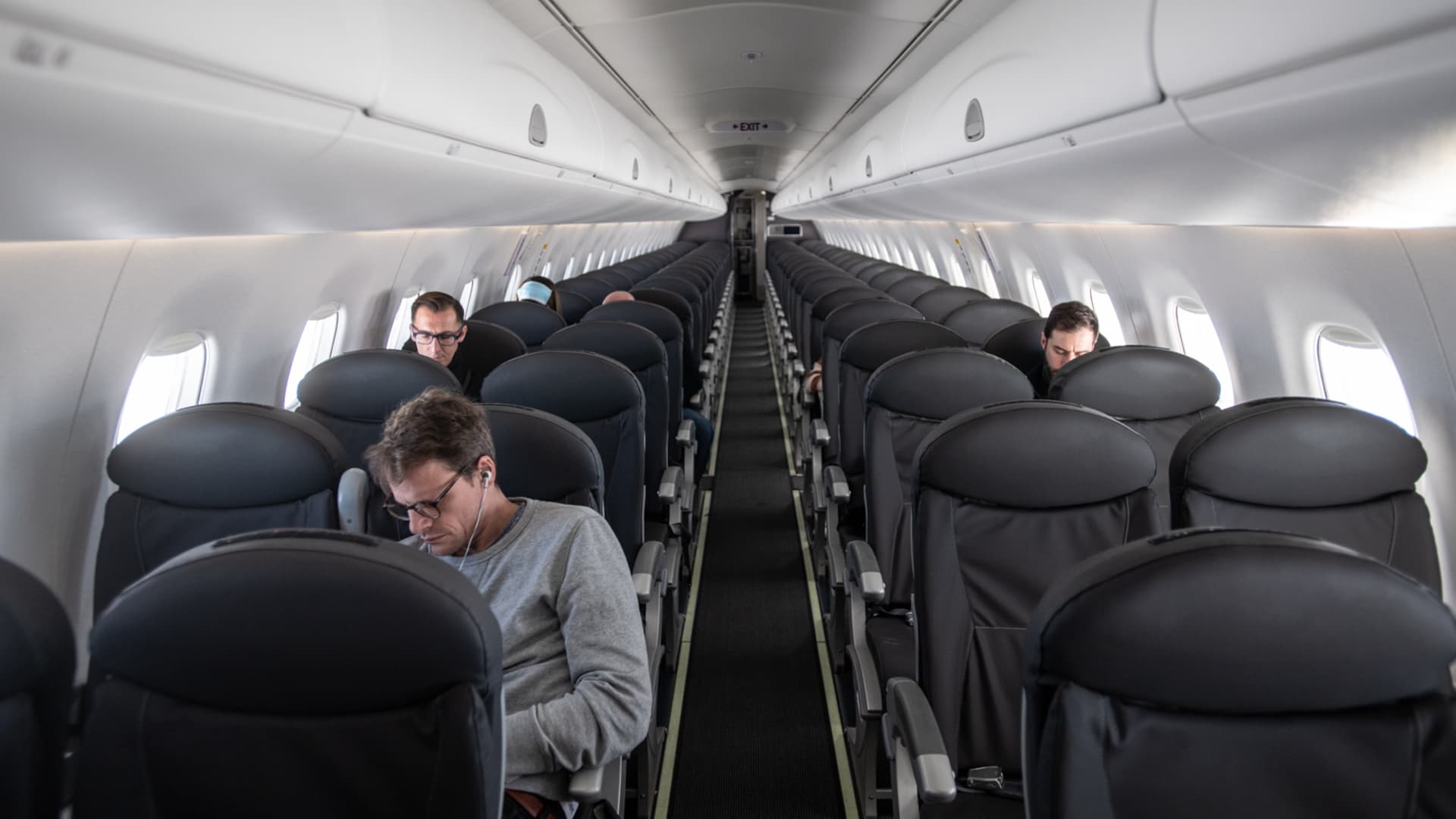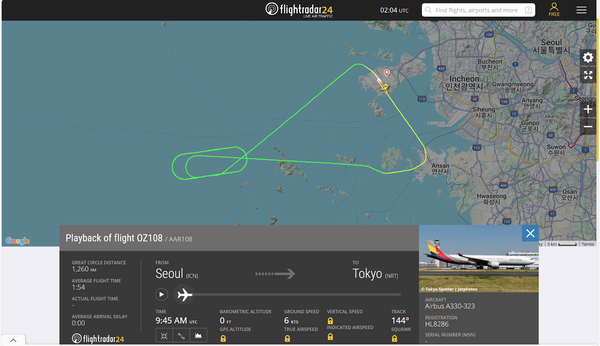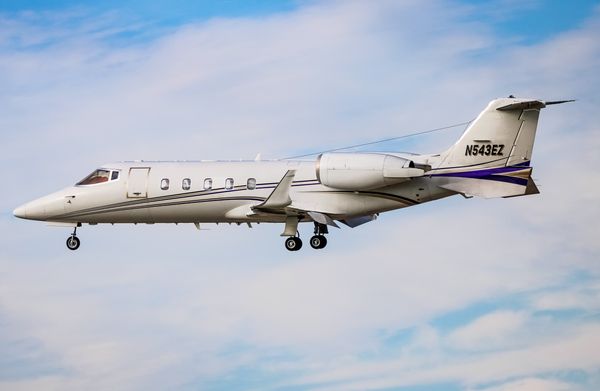Airlines ideally prefer selling all possible seats on a particular flight to ensure it generates the most profit amid the high costs of operating an aircraft. However, there are cases where airlines operate flights with no passengers onboard.

What is a "Ghost Flight"?
The term "ghost flight" describes a flight operated by an airline on a regularly scheduled route with an aircraft filled to less than 10% of its total capacity. Although such flights may appear rare on the surface, such flights have become more frequent following the COVID-19 pandemic.
The general public has quickly criticized airlines when they hear news of flights operating without sufficient passenger capacity. Critics say that unnecessarily operating planes with no people onboard significantly adds to aviation's environmental effects. While the environmental impact is true, there are legitimate reasons why airlines operate ghost flights.
Why Ghost Flights Exist
When the pandemic wreaked havoc worldwide, a huge drop in demand saw airlines cut numerous flights to airports worldwide. This was especially true at larger airports like London Heathrow Airport (LHR), which is heavily slot-restricted due to being a coveted destination for airlines. Airlines are assigned a specific number of slots at major airports. If an airline ceases service to that particular airport, another carrier can pick up the airline's slots.

Flying to airports in large cities is a huge source of cash for airlines. Airlines would want to retain their precious slots at these airports. As such, various carriers increased the number of ghost flights during the pandemic. Even though the number of passengers was minimal, those scheduled flights were still operated so the airlines could continue using their assigned slots.
Slots are also expensive to acquire, and airlines would not want to continue losing money by not utilizing their slots. If an airline did not use its slot for a long period, it would be surrendered so that another airline could use it. Before the pandemic, European airlines were required to use their slots at least 80% of the time. This was adjusted to 75% in October 2021 following a brief suspension.
Ghost flights being operated to keep slots are no minuscule matter. In January 2022, Lufthansa Group estimated that it would need to operate 18,000 ghost flights that winter season to keep all of its slots across its various European hubs.

Qatar Airways' Ghost Flights
Even though the aviation industry has largely recovered from the pandemic, ghost flights continue to operate. However, these are not necessarily to fulfill slot requirements. The most popular example of ghost flights today is the case of Qatar Airways, which operates ghost flights daily to exploit a legal loophole in Australia.
Qatar Airways serves Sydney (SYD), Melbourne (MEL), Perth (PER), Brisbane (BNE), and Adelaide (ADL) in Australia. The carrier previously served the capital city of Canberra (CBR) but suspended the route. Talks of resuming that service are ongoing, but no updates on resumption have been provided.
Australia's government limits Qatar Airways to 28 weekly flights to Australia's four largest airports. Since Adelaide is the fifth-largest airport, Qatar Airways flights to the city are exempted from the limit. The airline exploited this loophole by operating a daily roundtrip from Doha to Adelaide via Melbourne, flights QR988 and QR989. This is in addition to Qatar Airways' nonstop route from Doha to Adelaide, operated as flights QR914 and QR915.

Flights QR988 and QR989 are operated to allow Qatar Airways to take more flights to Melbourne Airport. Both routes terminate and originate in Adelaide, respectively. Because Adelaide is registered as the final or starting point for the flight, Qatar can get around the government limit despite these flights stopping over in Melbourne.
QR988 sees most passengers disembark in Melbourne. Similarly, most passengers board QR989 in Melbourne. This is because most Adelaide passengers would rightfully choose the nonstop Doha - Adelaide - Doha flights, not the ones that stop in Melbourne. Few passengers stay for QR988's Melbourne - Adelaide and QR989's Adelaide - Melbourne segments.
Qatar Airways does not have fifth-freedom rights in Australia, meaning it cannot transport passengers solely between Australian cities. If Qatar Airways were granted these rights, it could fill more seats on the MEL-ADL-MEL routes. But it does not, meaning the carrier operates ghost flights daily.
This has facilitated controversy, particularly regarding the environmental impact. Flying a Boeing 777-300ER a combined 900 miles (1,448 kilometers) with virtually no passengers onboard accounts for unnecessary emissions that impact the environment.
Comments (1)

Add Your Comment
SHARE
TAGS
INFORMATIONAL Qatar Airways Boeing Australia Adelaide Melbourne Economics Slots Airport Travel Demand Sustainability ControversyRECENTLY PUBLISHED
 Tokyo-Bound Asiana Flight Experiences Engine Failure
An Asiana Airlines flight bound for Tokyo experienced an engine failure, prompting its return to Incheon International Airport.
NEWS
READ MORE »
Tokyo-Bound Asiana Flight Experiences Engine Failure
An Asiana Airlines flight bound for Tokyo experienced an engine failure, prompting its return to Incheon International Airport.
NEWS
READ MORE »
 Learjet Owned By Vince Neil Crashes Into Gulfstream Jet, 1 Fatality Confirmed
On February 10th, around 14:30 local time, a Learjet private jet aircraft crashed into another private jet after landing at Scottsdale Airport (SCF) in Arizona.
NEWS
READ MORE »
Learjet Owned By Vince Neil Crashes Into Gulfstream Jet, 1 Fatality Confirmed
On February 10th, around 14:30 local time, a Learjet private jet aircraft crashed into another private jet after landing at Scottsdale Airport (SCF) in Arizona.
NEWS
READ MORE »
 Seattle Plane Strike 2025: Japan Airlines and Delta Collision Raises Safety Concerns
Seattle-Tacoma International Airport saw a concerning incident on Wednesday morning when a Japan Airlines (JAL) plane clipped a parked Delta Air Lines jet while taxiing. Thankfully, no one was injured, but passengers described the collision as a frightening experience.
NEWS
READ MORE »
Seattle Plane Strike 2025: Japan Airlines and Delta Collision Raises Safety Concerns
Seattle-Tacoma International Airport saw a concerning incident on Wednesday morning when a Japan Airlines (JAL) plane clipped a parked Delta Air Lines jet while taxiing. Thankfully, no one was injured, but passengers described the collision as a frightening experience.
NEWS
READ MORE »



